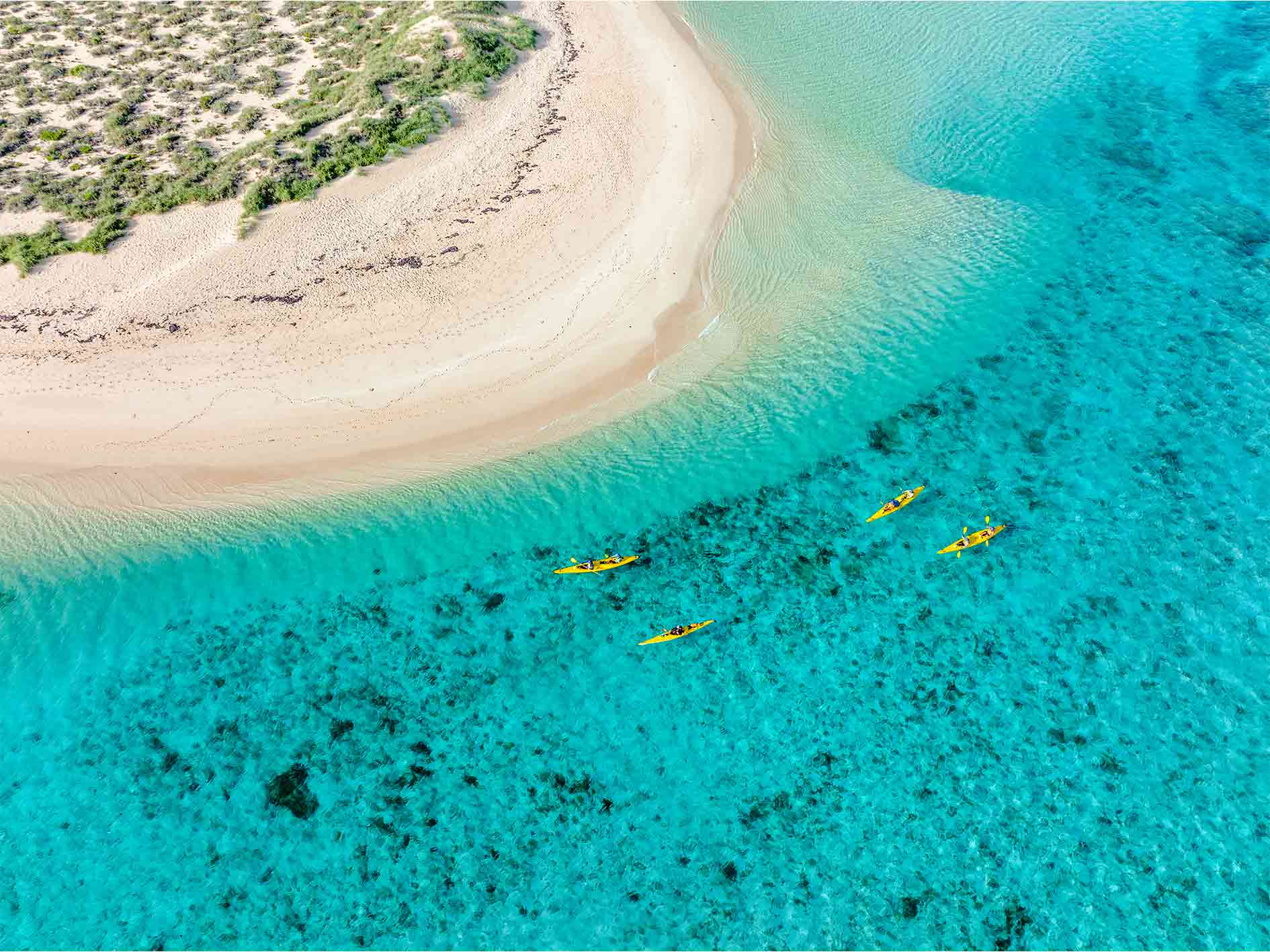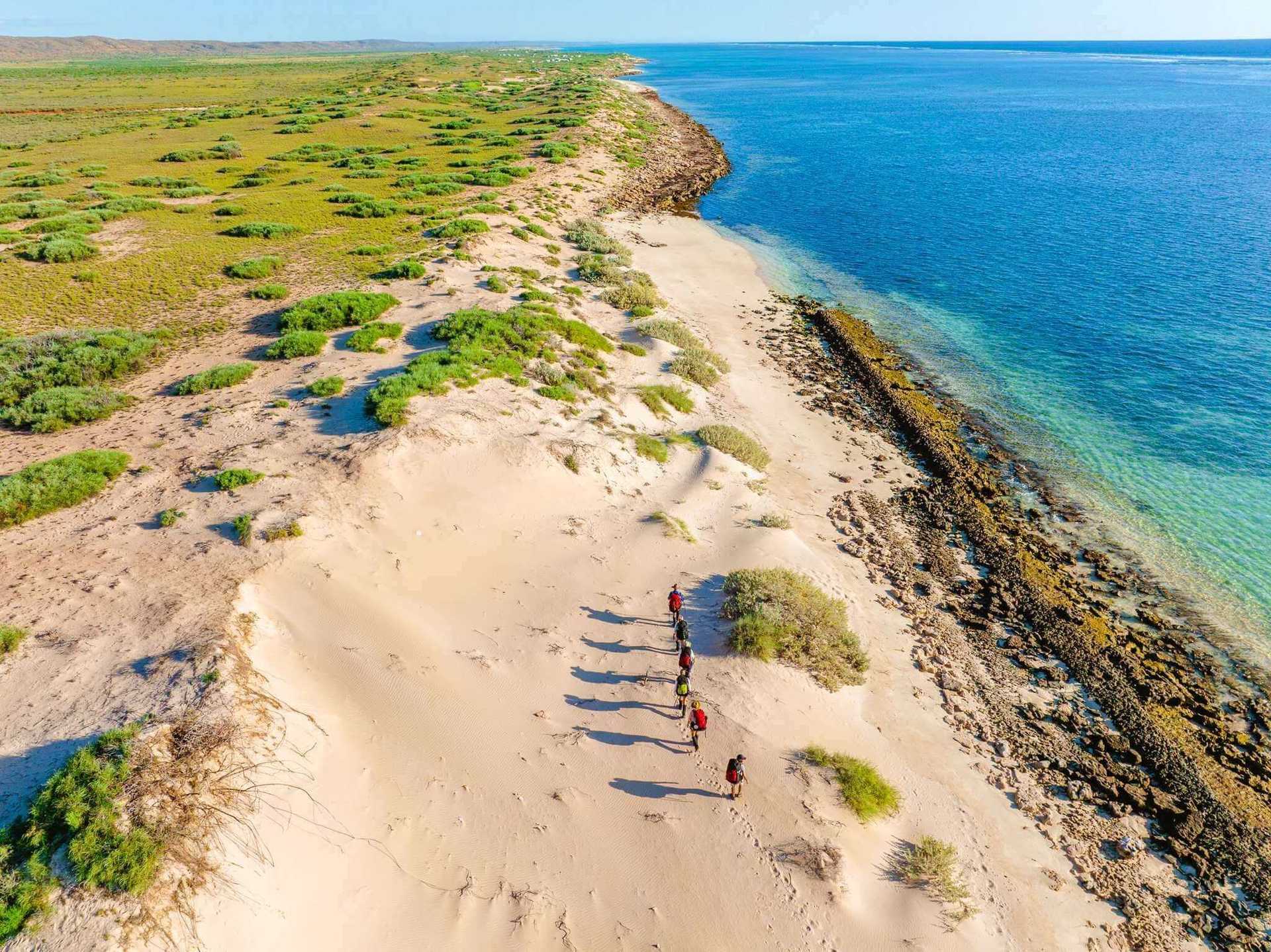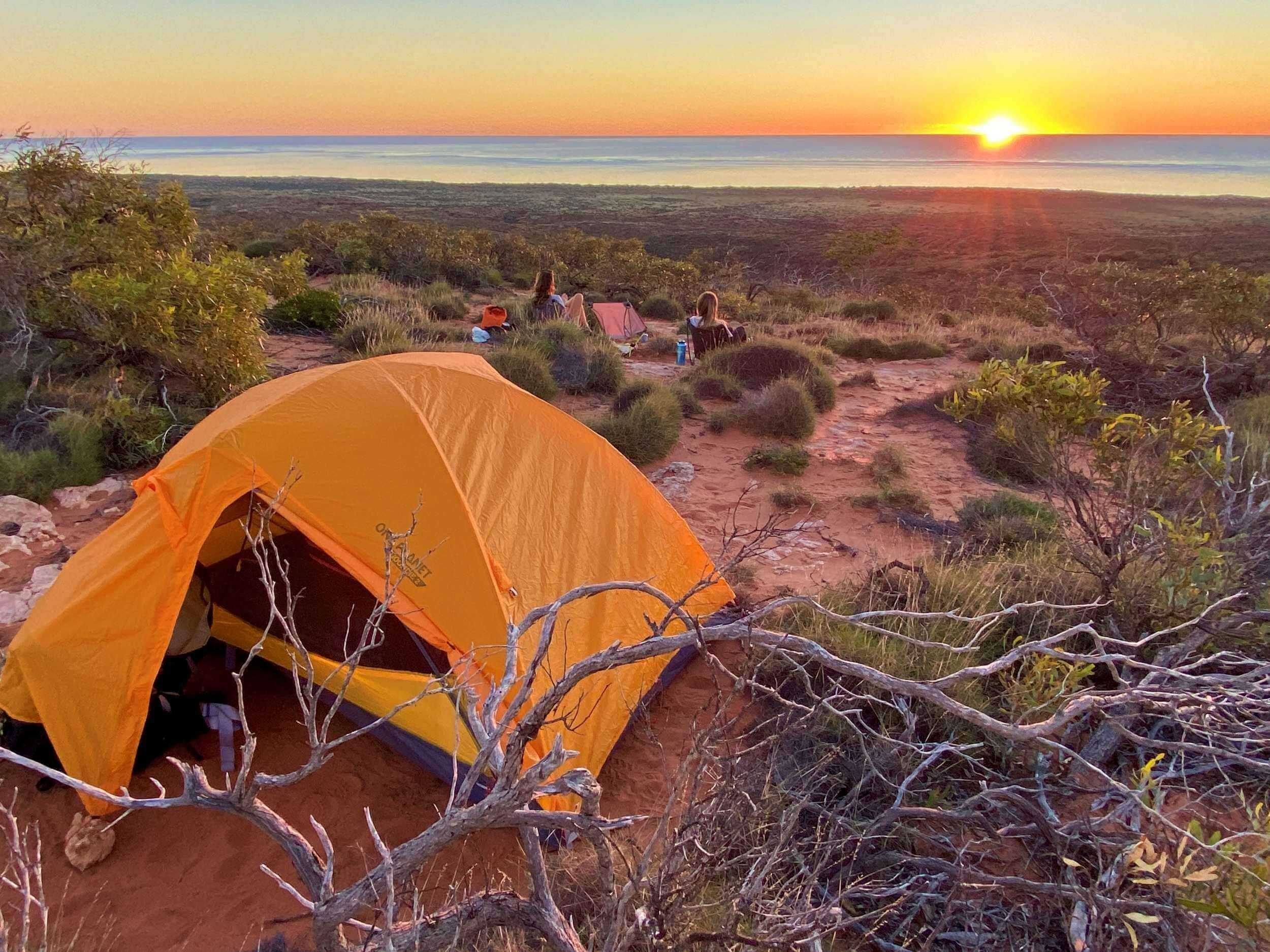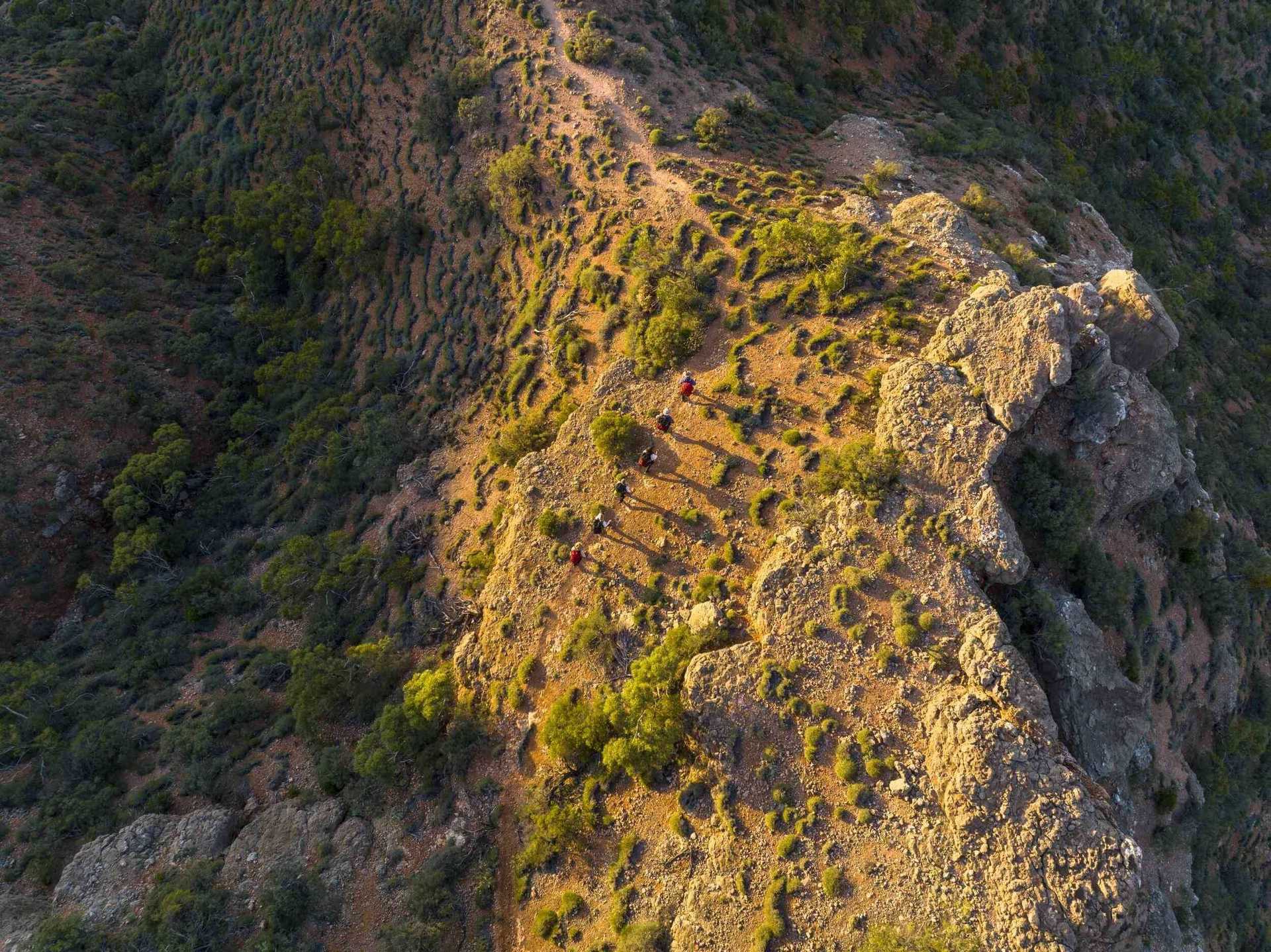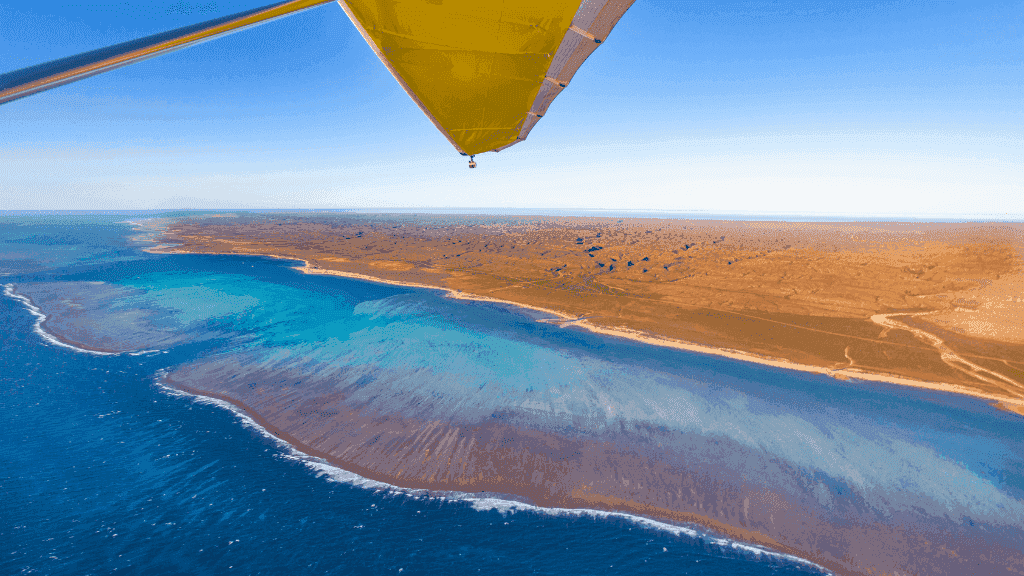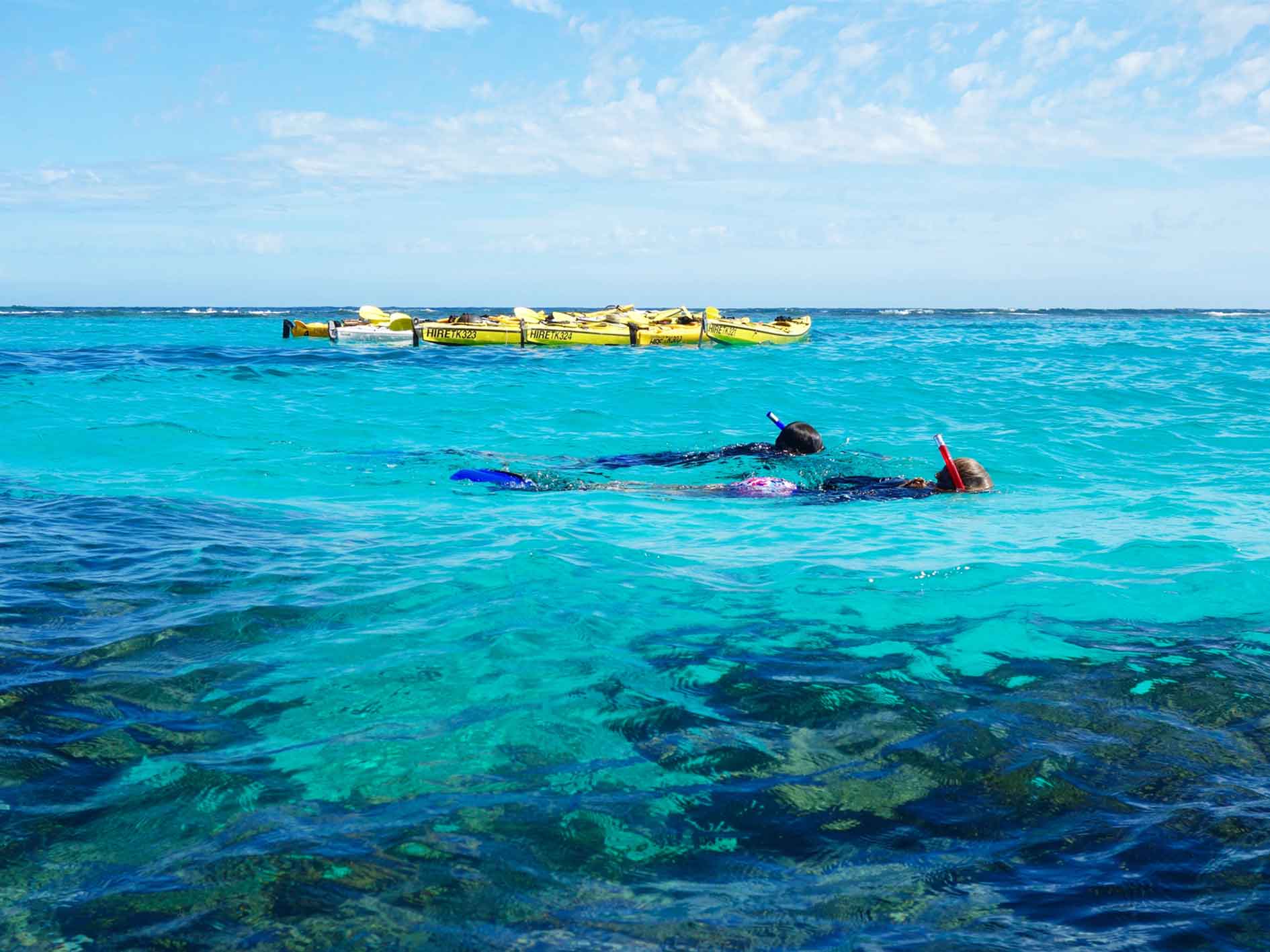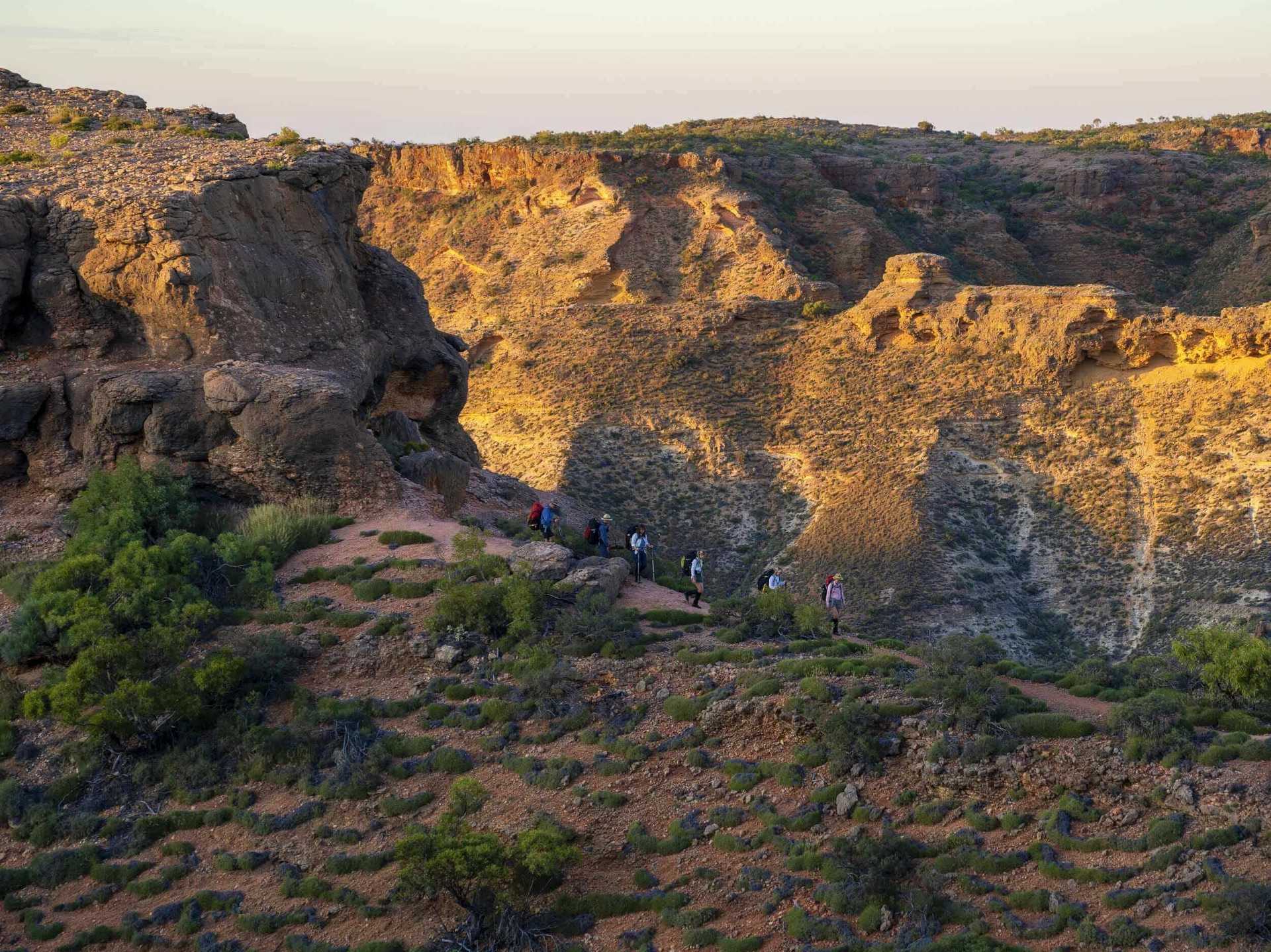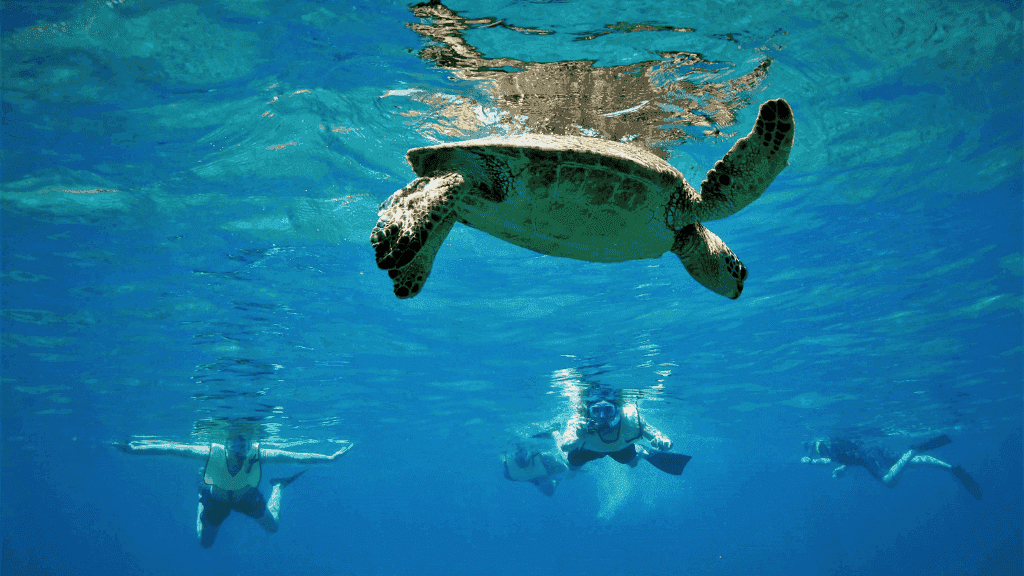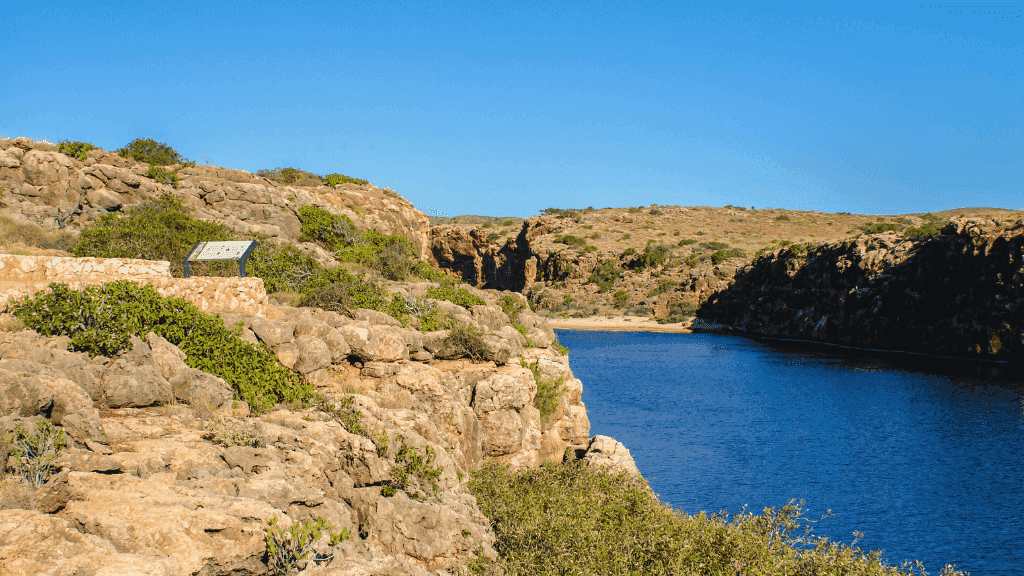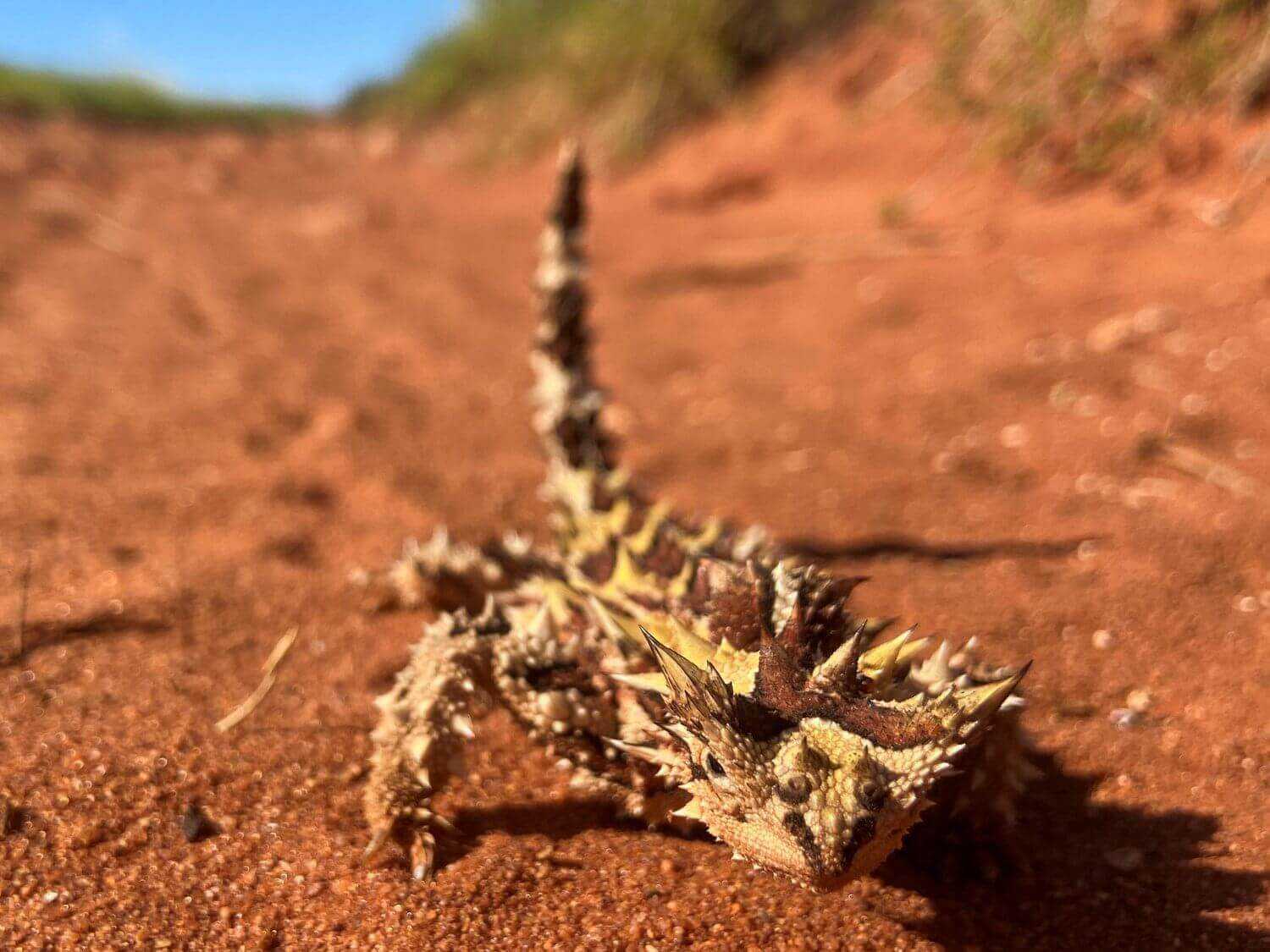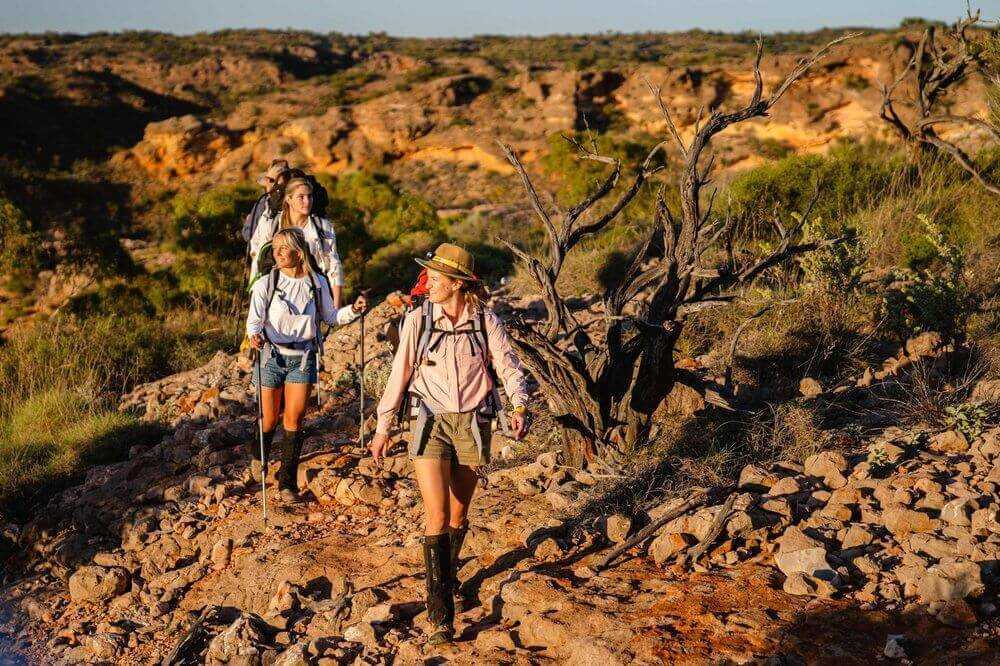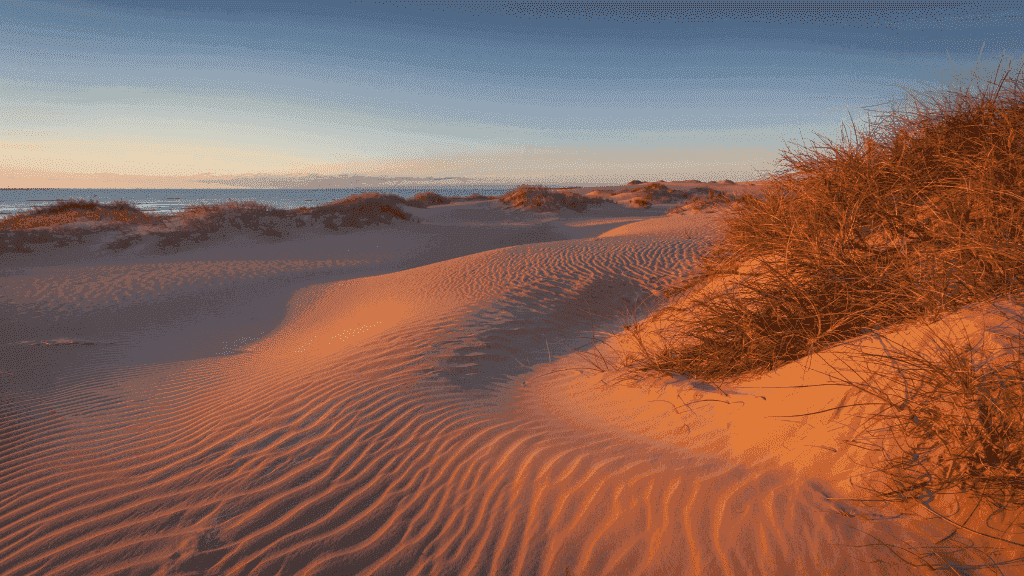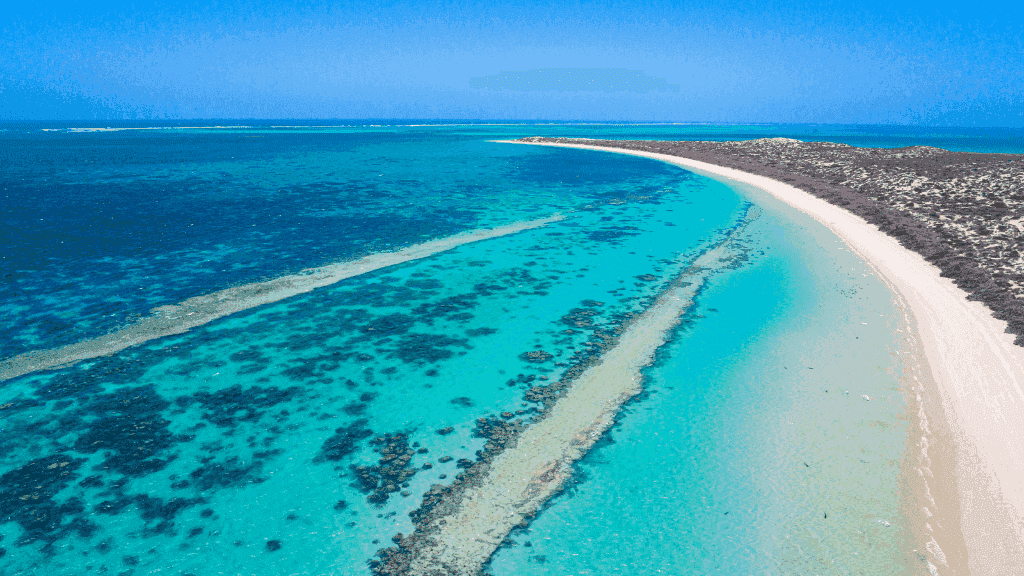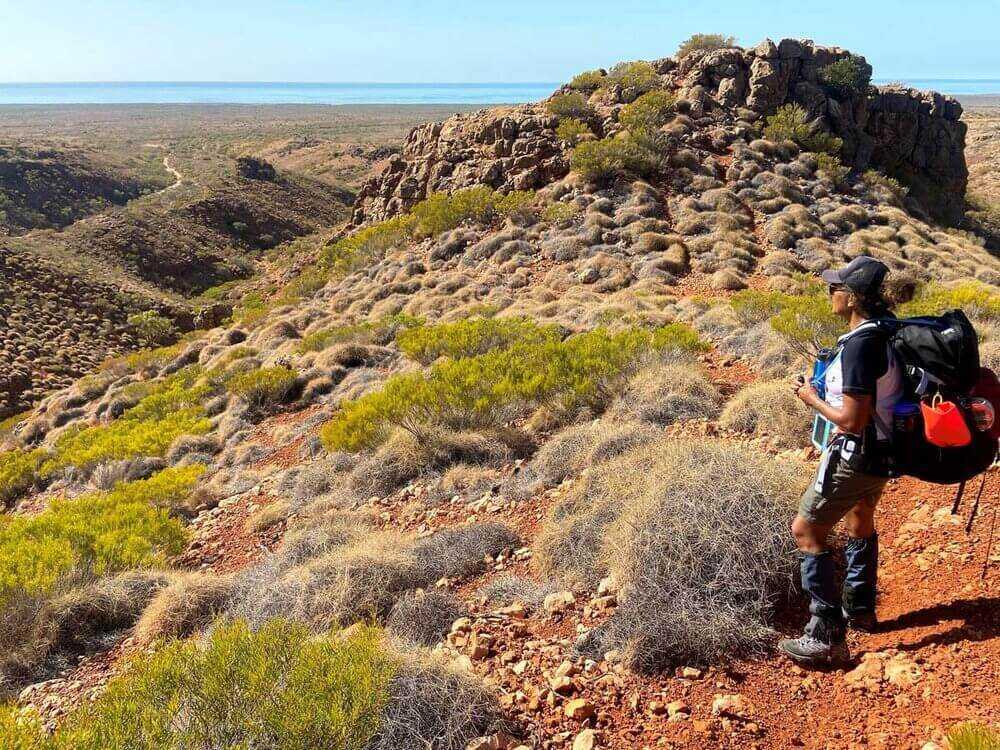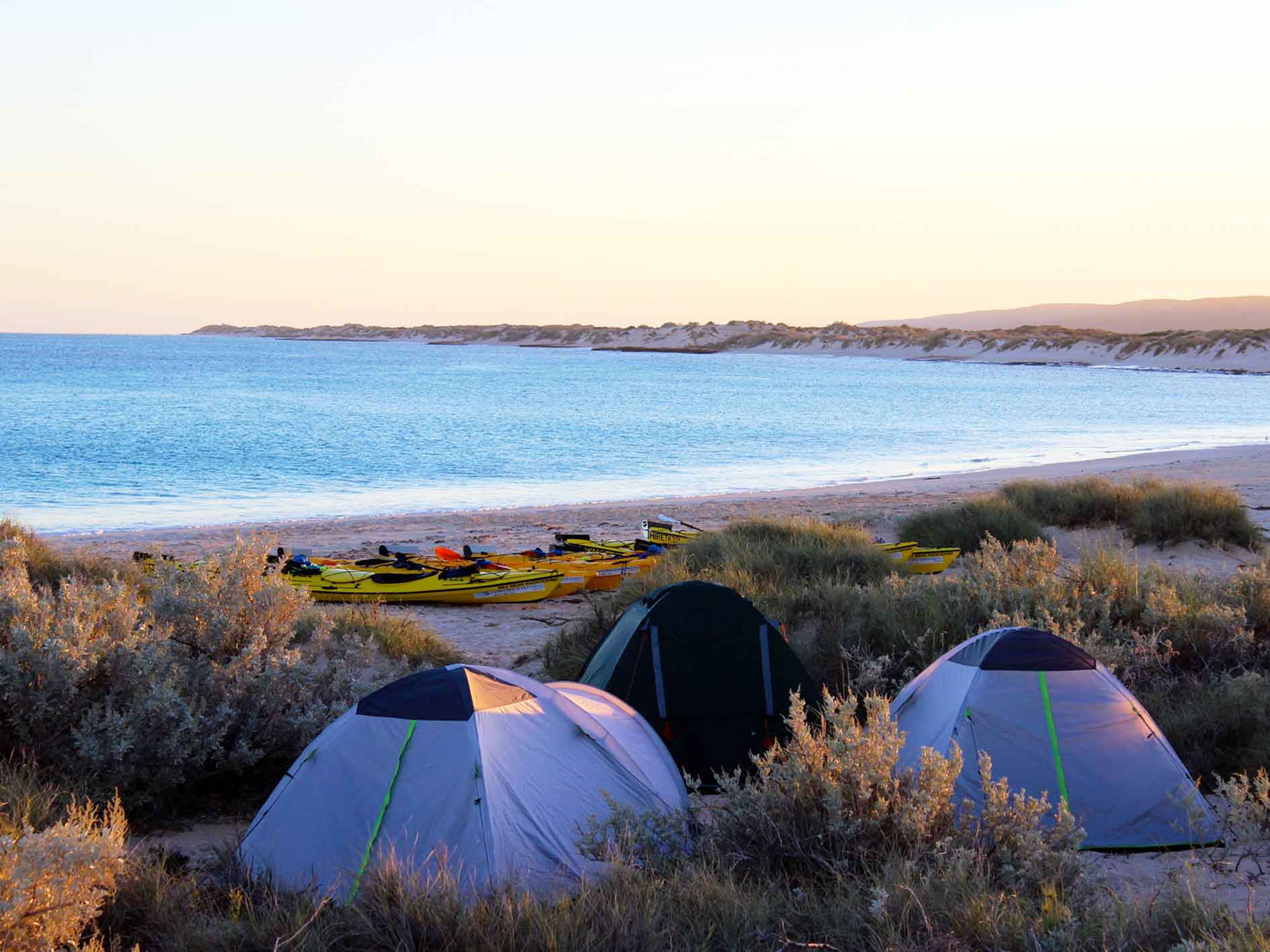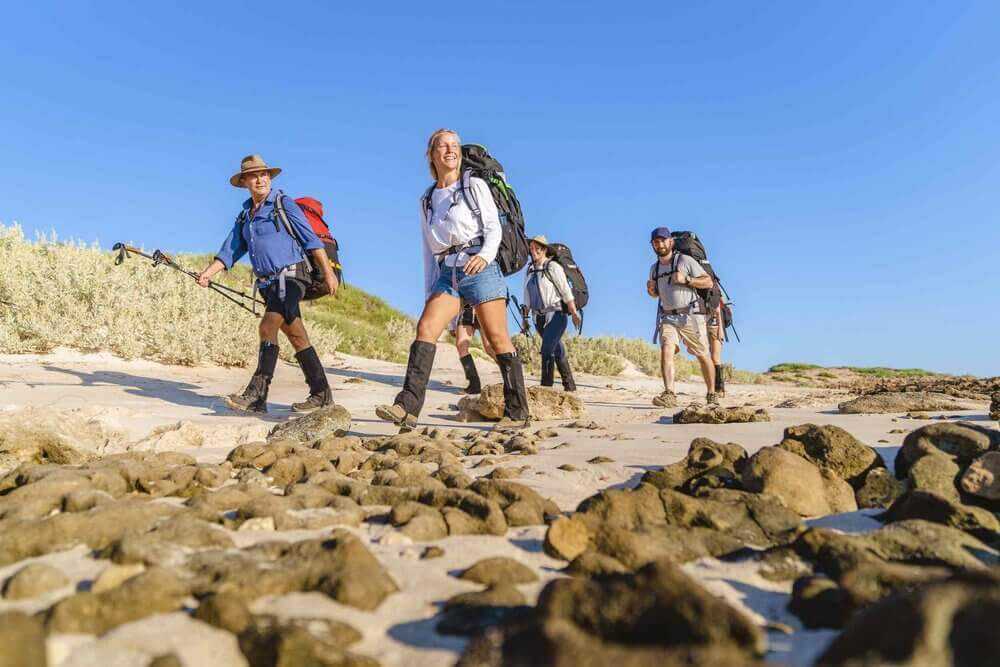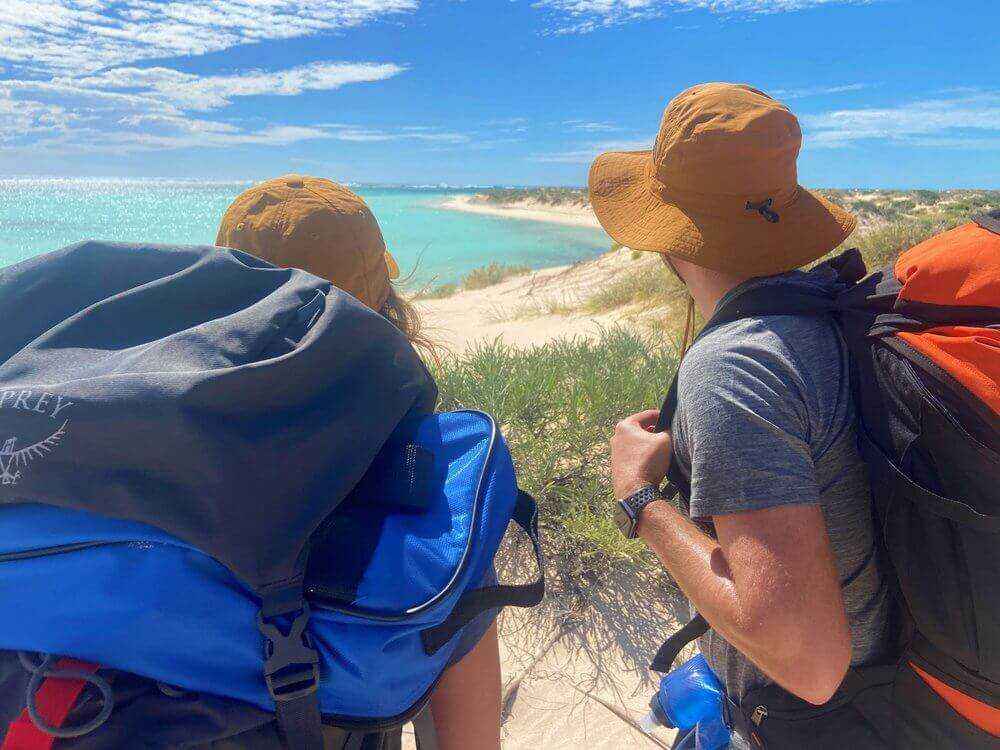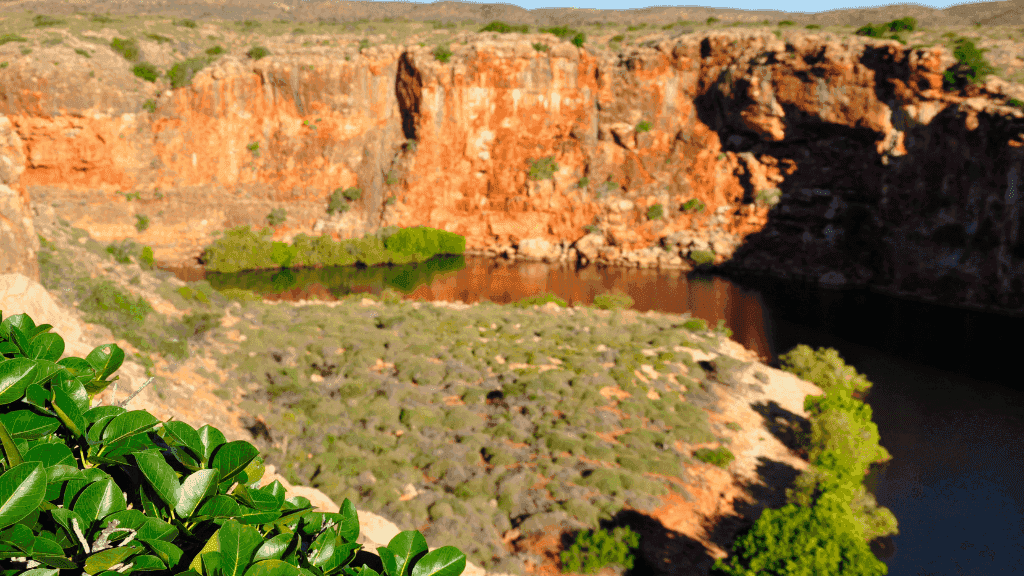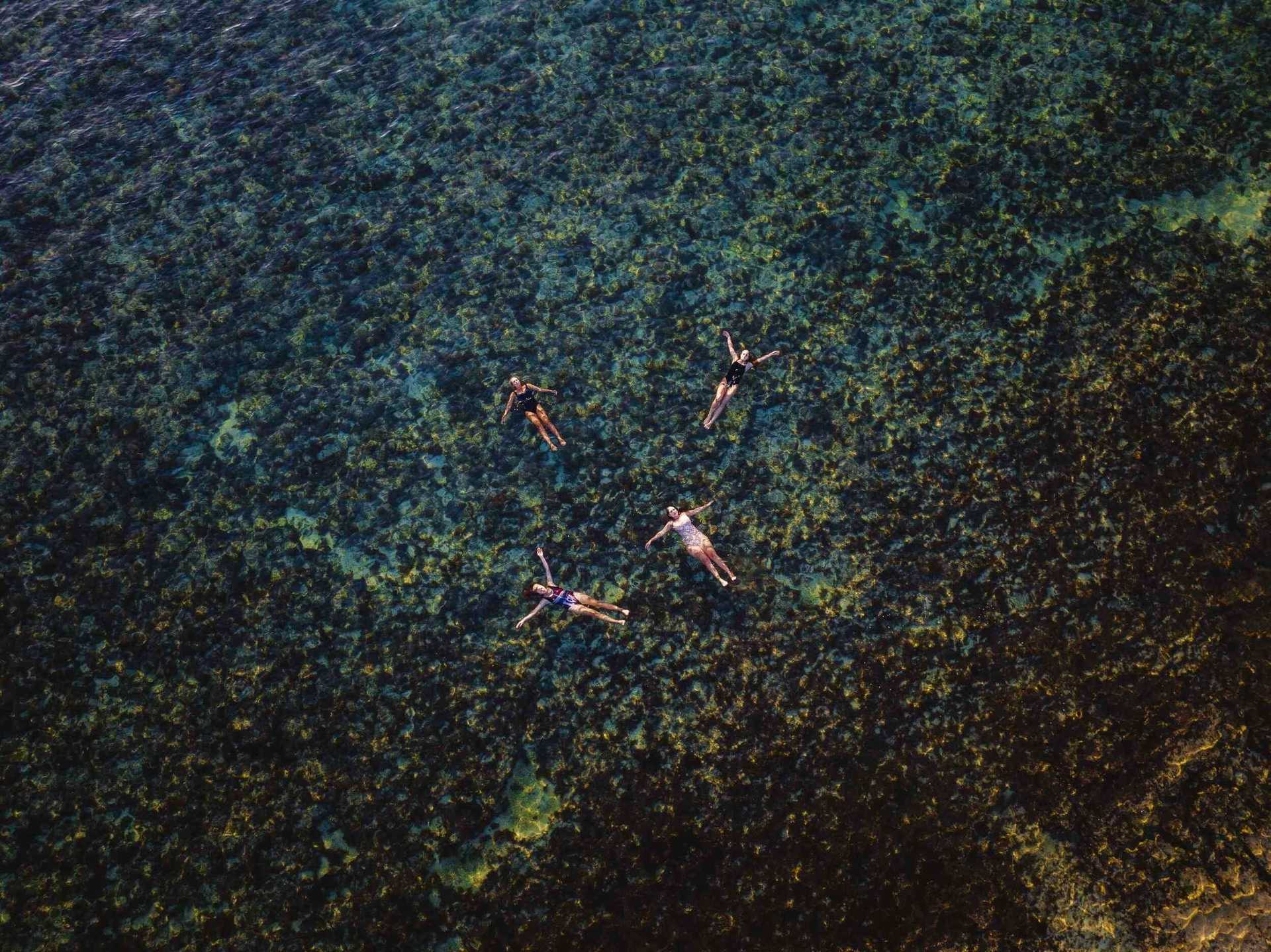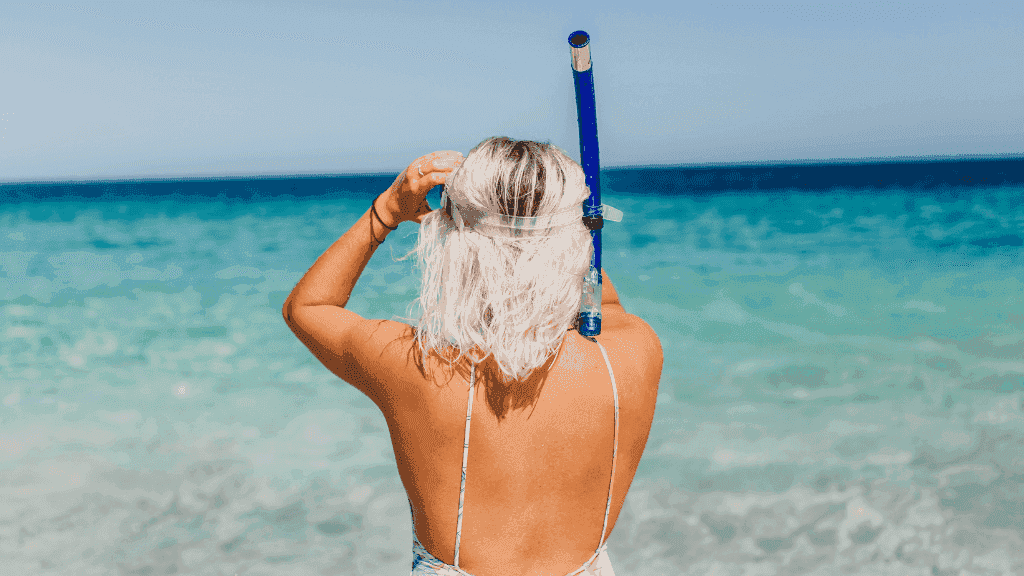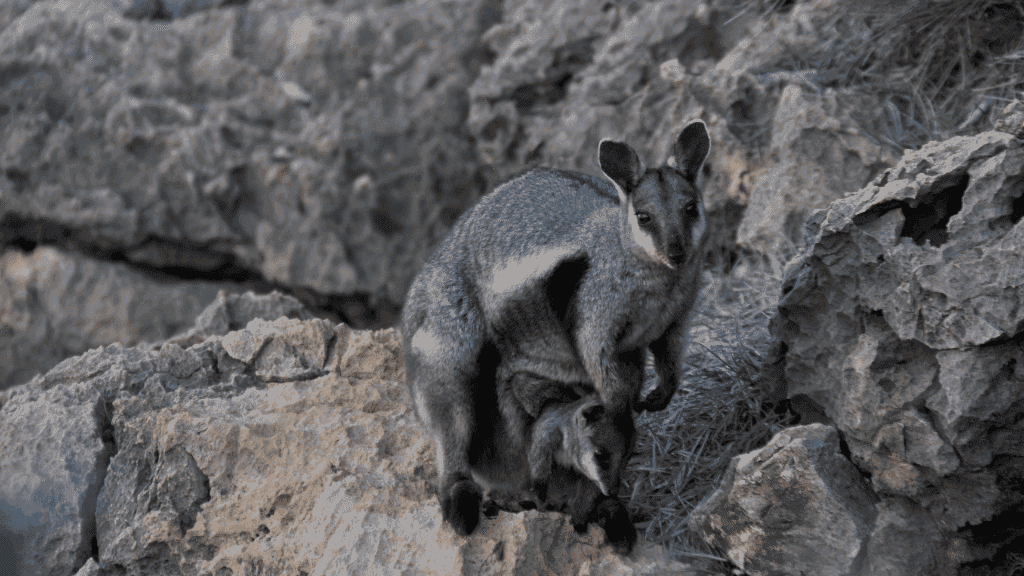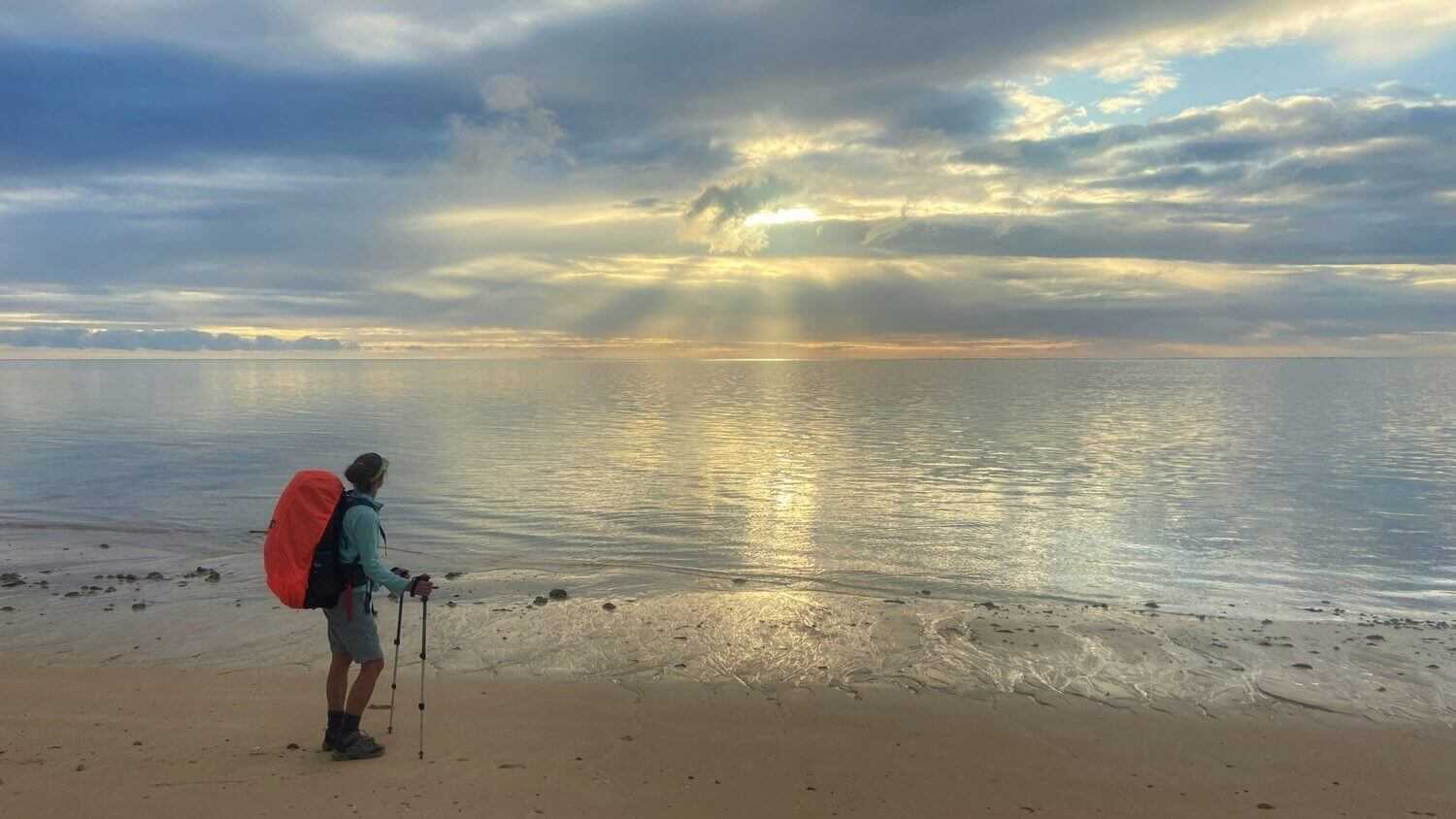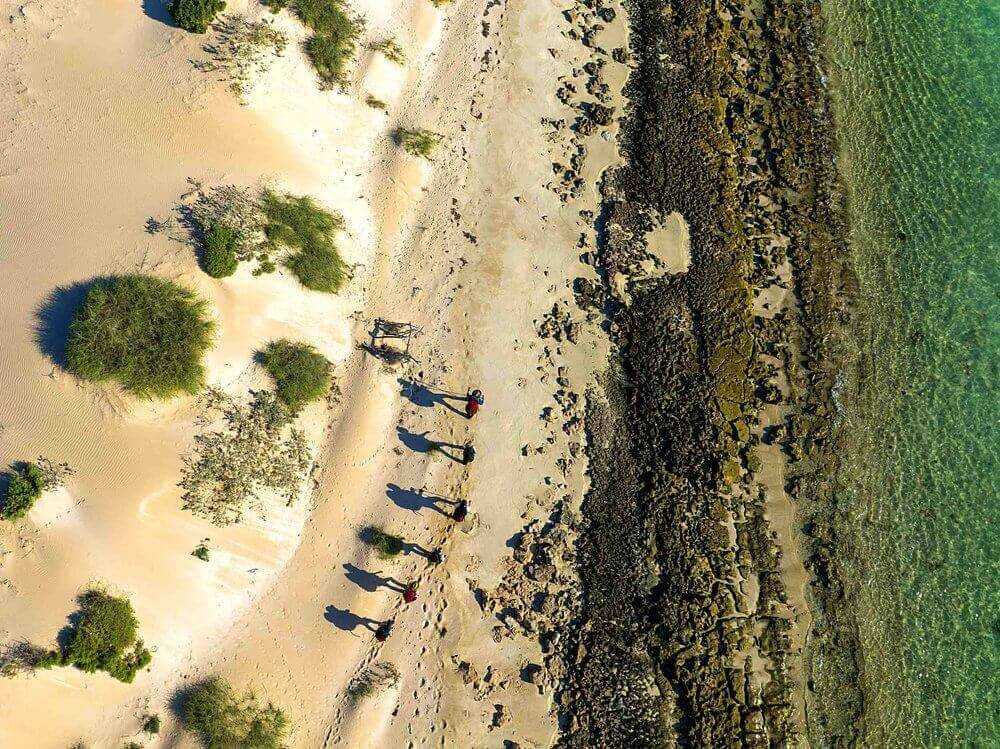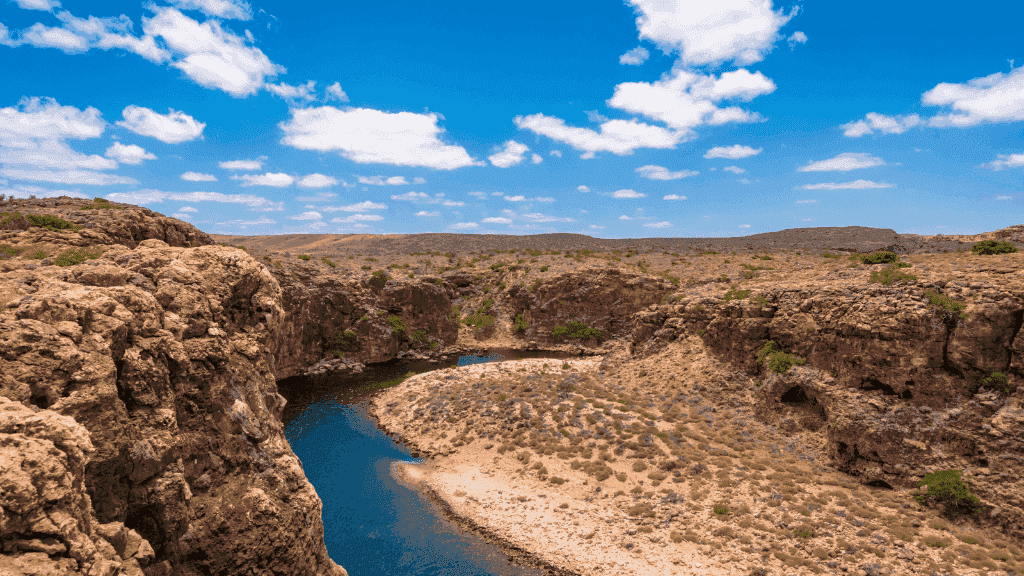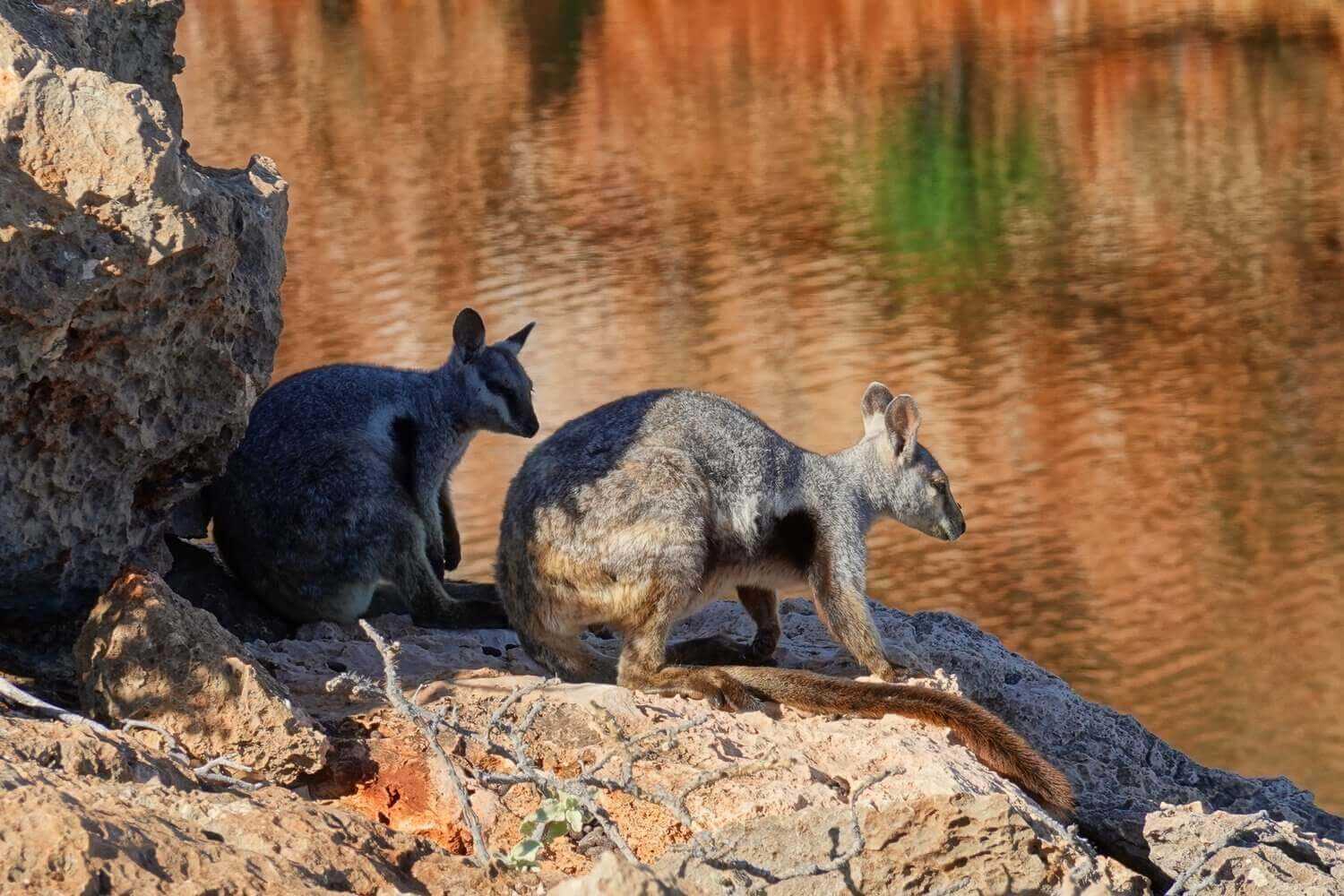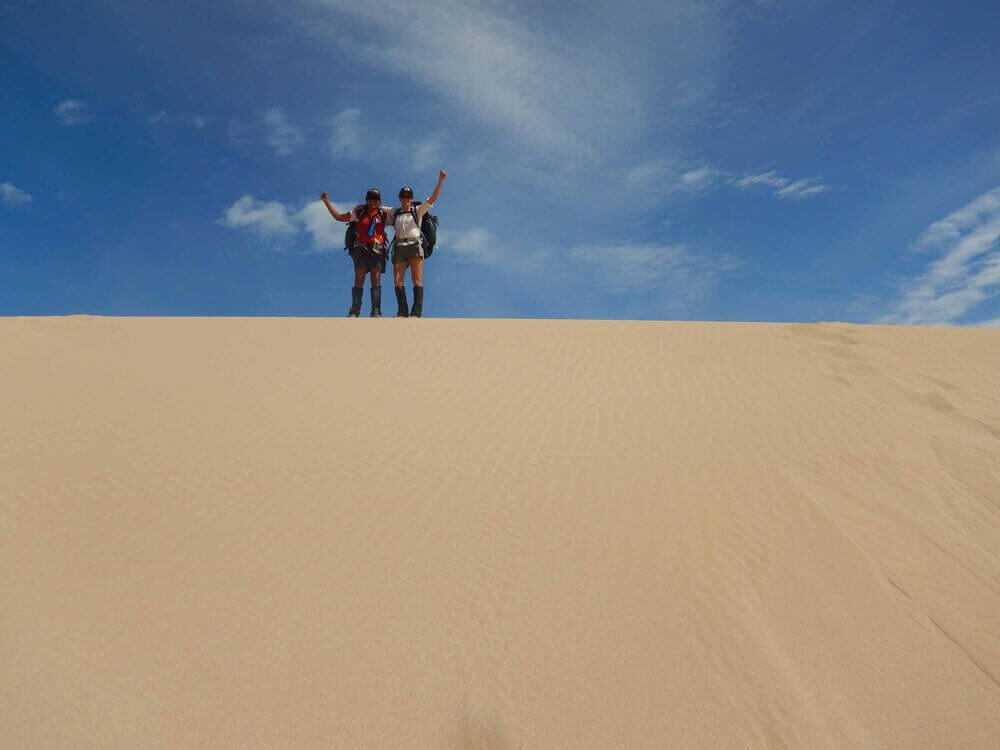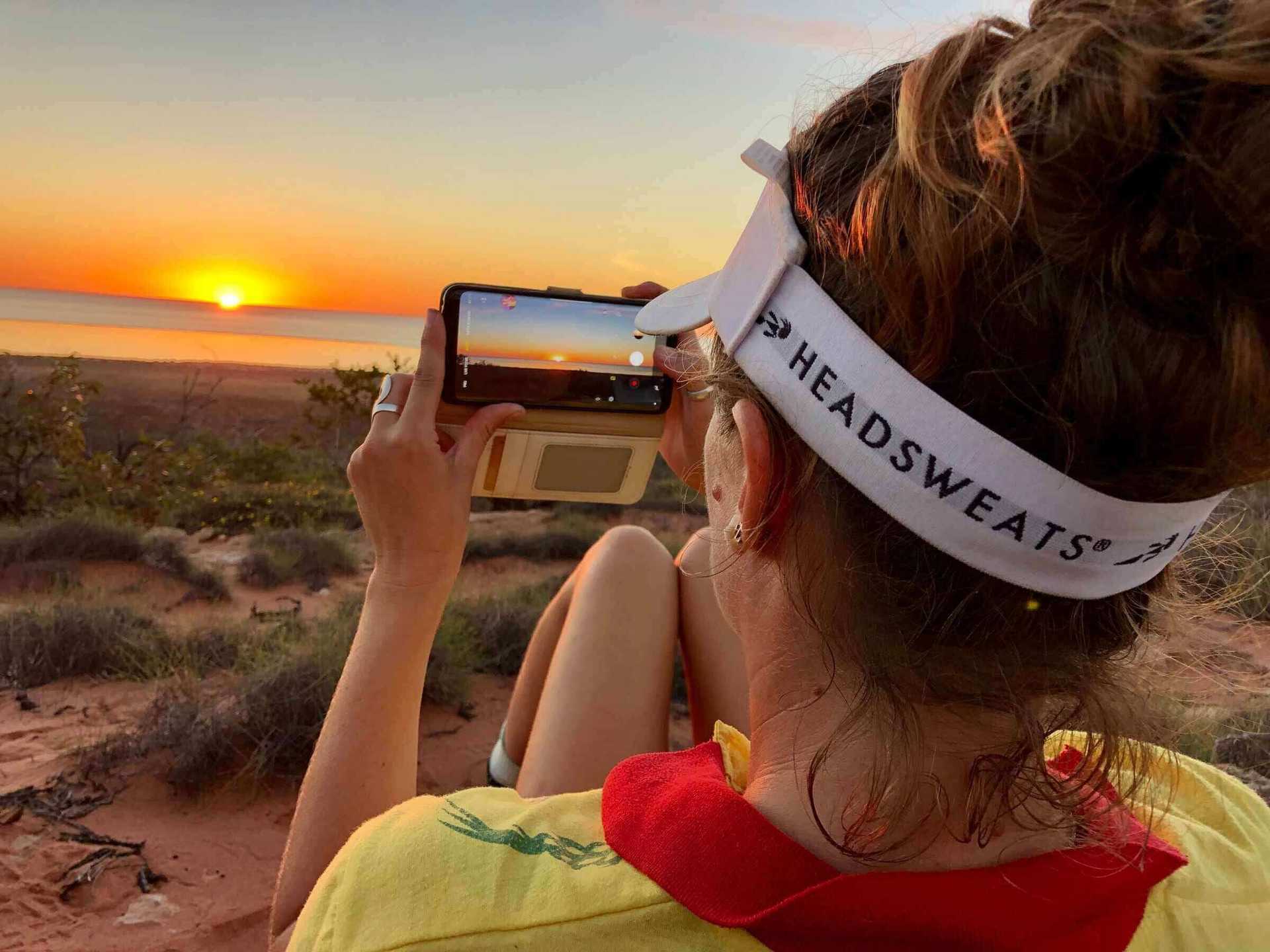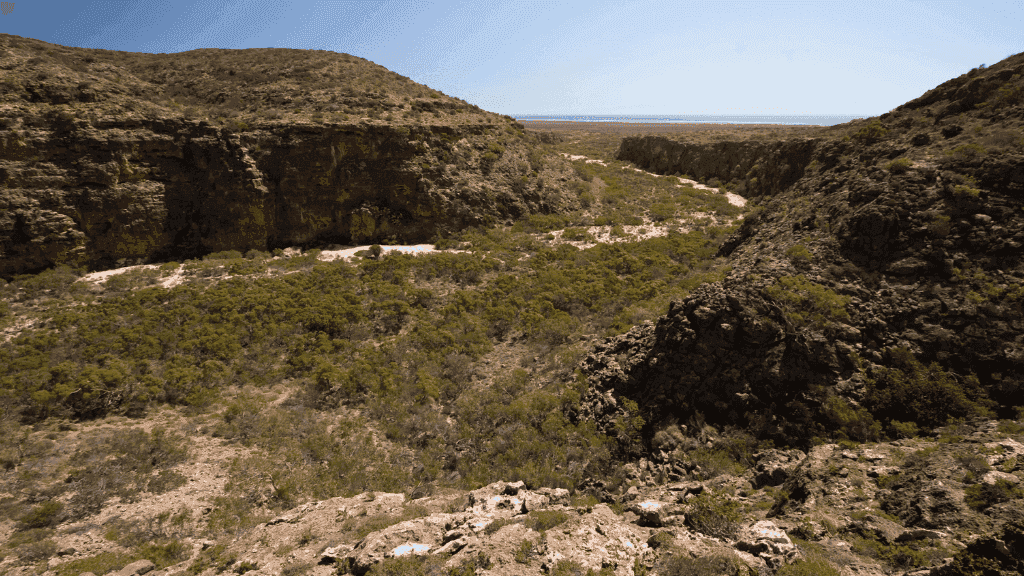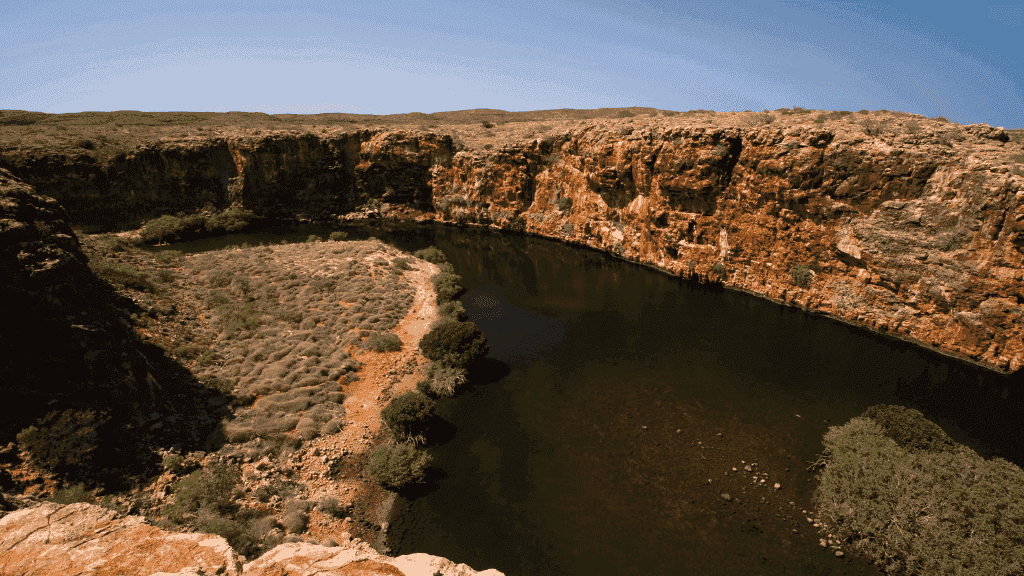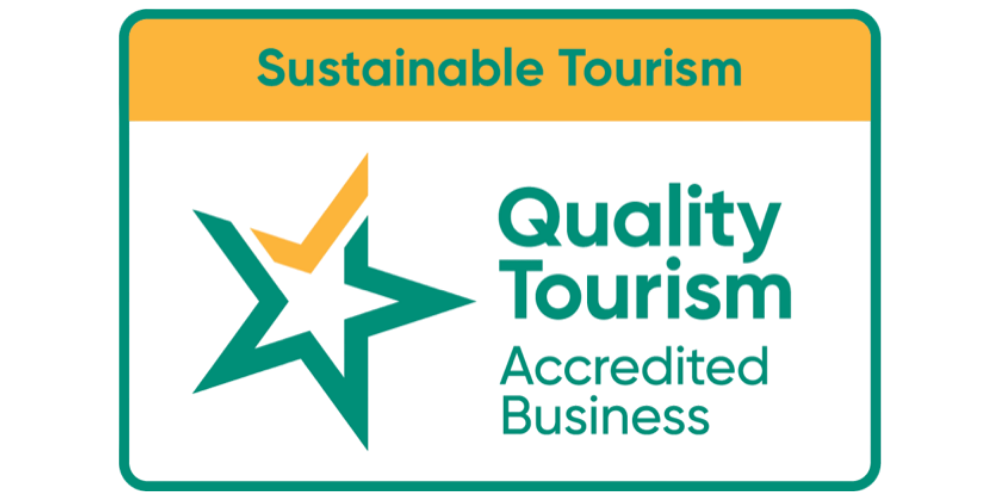Where You’ll Be Staying
Nights Under the Stars
Forget hotels—this journey unfolds under wide skies and rust-red cliffs. Camp is set in hand-picked wilderness locations each night, from high in Cape Range to the white sands of the Ningaloo Coast.
Night 1: Remote inland campsite deep within Cape Range
Night 2: Beachfront camp on the edge of the Indian Ocean
Lightweight tents are supplied for a comfortable night’s sleep, with sleeping mats and bags included. Campsites are off-grid and wild—no facilities, just nature. All gear is carried in, packed out, and set up as a group.
What’s Cooking
Meals are wholesome, hearty, and designed for life on the trail. Think generous portions, real ingredients, and zero-fuss preparation.
Breakfasts are simple and energising—muesli, fruit, hot drinks, and bush-style favourites.
Lunches are served trail-side or at scenic rest spots, with fresh salads, wraps, or grain bowls.
Dinners are nourishing and satisfying—usually one-pot meals prepared together at camp. Expect something warm, spiced, and deeply appreciated after a long day.
Snacks, trail treats, and plenty of tea and coffee are available throughout. Dietary requirements are catered for—just note them at the time of booking.
This is back-to-basics done right. No glamping, no gimmicks—just good food, wild places, and nights you’ll remember.

